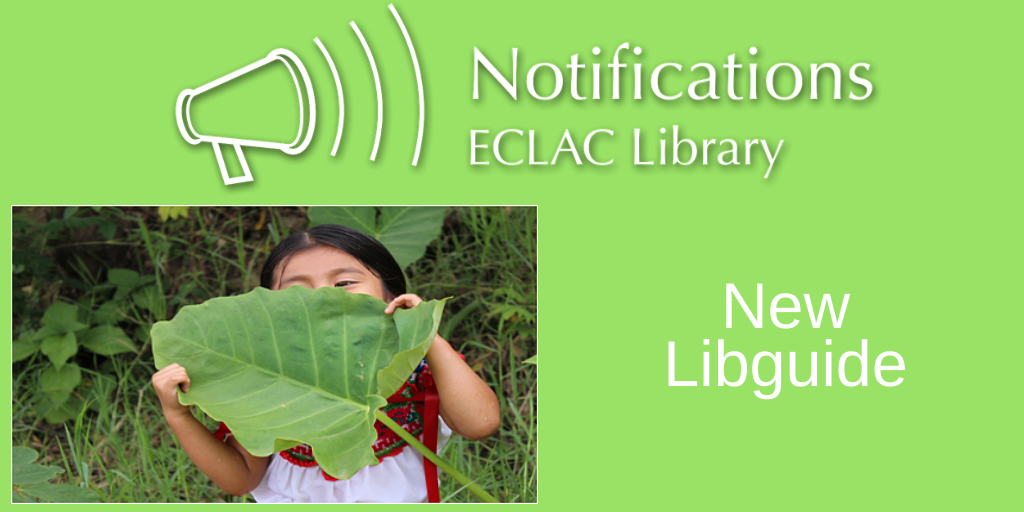Environment and climate change statistics for Latin America and the Caribbean
Topic(s)
The new libguide was prepared by the Hernán Santa Cruz Library in collaboration with the Statistics Division in the Area of Environment Statistics and Climate Change. The guide provides information resources essential for the preparation of environment statistics for the region.

The Environment Statistics and Climate Change libguide for Latin America and the Caribbean is a result of a joint initiative of the Hernán Santa Cruz Library and the Statistics Division in the Area of Environment Statistics and Climate Change. The libguide represents the first time that information related to the production of environment statistics, as well as the conceptual, methodological and data resources available for Latin America and the United States is available on a single site, in a simple and direct way.
The guide presents a description of environment statistics and basic concepts, through global and regional constructs. Users will find a large amount of bibliographic material, produced by the United Nations Statistical Commission, ECLAC and other specialized agencies of the United Nations. Also, in each theme, the main methodologies and databases for calculating environment and climate change indicators can be found.
The section on international statistical recommendations are ordered according to the Framework for the Development of Environment Statistics (2013), which includes biophysical aspects of the environment and those aspects of the socioeconomic system that directly affect and interact with the environment, such as: water, air, climate, energy, biodiversity, land use, forests, coastal edge, marine ecosystems, pollution, solid waste, hazardous events and disasters, etc.
The libguide also includes a section on the institutional, global and regional indicator frameworks that require environment statistics for monitoring, such as, the Sustainable Development Goals, the Paris Agreement to fight against climate change and/or the Sendai Framework for Action for Disaster Risk Reduction.
Moreover, it also includes a section that presents the resources available in the institutions that produce national environment statistics in Latin American countries, especially the National Statistics Institutes and the Ministries in charge of the Environment and Climate Change.
The libguide contributes not only knowledge and experiences, but aims to generate dialogue using a common conceptual framework, on the problems of production, use and distribution of environment statistics.
Notably, other regional collaboration tools available are the Regional Network of Environment Statistics (https://comunidades.cepal.org/estadisticas-ambiental/es) and the website of the Area of Environment Statistics and Climate Change (https://www.cepal.org/es/temas/estadisticas-ambiental).
The new libguide is available at this link: https://biblioguias.cepal.org/estadisticasambientales